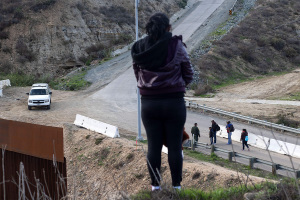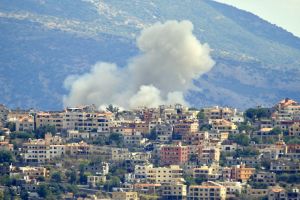Vatican Observer to UN Delivers Thoughts on the Culture of Peace
"The world will never be the dwelling place of peace, till peace has found a home in the heart of each and every person
NEW YORK– The Vatican’s permanent observer to the United Nations, Archbishop Celestino Migliore, delivered an address on the “Culture of Peace” to the UN General Assembly, asking the delegates to remember “the heart of each and every person” while setting up the structure for peace.
The following is the Nov. 11 letter, entitled, "Must Be Willed, Earned and Shared as a Common Good,” in its entirety.
Mr. President,
My Delegation welcomes this opportunity to participate once again in the discussion on "Culture of Peace."
The Holy See has always welcomed and embraced diverse and varied cultures for centuries. Against this background, in speaking of peace, my delegation recognizes first of all that peace is not essentially about structures, but about people.
Peace is above all about those who are realistic enough to recognize that in spite of the downsides of human nature and society, peace is possible. No effort should be spared in achieving it. For this, peace must be willed, earned and shared as a common good of humanity.
If we look at the hotbeds of wars in our time, we cannot but ask ourselves how mass media, politicians and public authorities depict the realities surrounding those conflicts. Does the media to which those affected populations are exposed propose peace; do public statements and comments speak of peace; do school books teach the ways of peace; do conversation that young people have within their families and among their peers prepare them for peace?
Mr. President, the reasons that are given to justify conflicts must be duly addressed, before, during and after they occur. The necessity to impose an armed defense to dissuade the other party from becoming an enemy should be prudently and carefully weighed against an equal necessity to reach out to the other party, beyond any presumed or alleged enmity, leaving always the door open for all possible peaceful solutions. Consequently, when those who bear the responsibility and the obligation to defend peace and order are called upon to decide whether or not to take up legitimate defense, their decision must be subject to the rigorous conditions given within the moral order because such actions can be justified only when all peaceful means of resolving the crisis have been proven to be impractical, ineffective or impossible.
Mr. President, unlike the culture of war, the culture of peace entails an ethical approach to life. It shows the right and secure path that leads to the respect for life. War "destroys the life of innocent people, teaches how to kill, throws into upheaval even the lives of those who do the killing and leaves behind a trail of resentment and hatred, thus making it all the more difficult to find a just solution to the very problems which provoked the war" (Pope John Paul II, "Centesimus Annus," #52).
This year the United Nations celebrates the fifty-fifth anniversary of the Declaration of Human Rights. This event calls everyone to the fundamental recognition of the full dignity of every human being. From such recognition springs the right to peace. But, when peace loses its value in society and its importance in public policy, human rights and international obligations become jeopardized and compromised.
Peace is an enterprise of justice. At the root of war, and in particular of terrorism, a type of armed aggression which we are sadly experiencing in our present age, we find serious grievances that are yet to be addressed by the international community: injustices suffered, legitimate aspirations frustrated, abject poverty, discrimination, intolerance, and exploitation of multitudes of desperate people who have no real hope of improving their lives. Such injustices incite violence, and every injustice can lead to war.
Peace, which could be defined as "the tranquility of order," is a fundamental duty of everyone. However, peace is built up on mutual trust, and trust can be achieved only with justice and fairness. Peace demands the correction of violations, the redress of abuses, the rehabilitation of victims and the reconciliation of the aggrieved parties. The strategy of building trust means overcoming all obstacles that impede works of justice with a view towards peace. Only in such a climate of peace can a culture of peace take root and flourish.
Mr. President, if development is the new name for peace, then war and the proliferation of weapons must be considered the major enemies of development of peoples. By putting an end to the arms race a true disarmament process can begin, with agreements based on authentic and workable safeguards. The reallocation of economic and other resources from arms race to humanitarian needs such as basic health care, education for all and strengthening of the family, will indeed promote and strengthen a culture of peace.
Mr. President, these are some thoughts my delegation wishes to share in the context of the fortieth anniversary of "Pacem in Terris -- Peace on Earth," the epical Encyclical Letter of Pope John XXIII. Allow me therefore to close with the following words of that same Encyclical: "The world will never be the dwelling place of peace, till peace has found a home in the heart of each and every person."
Thank you, Mr. President.




























